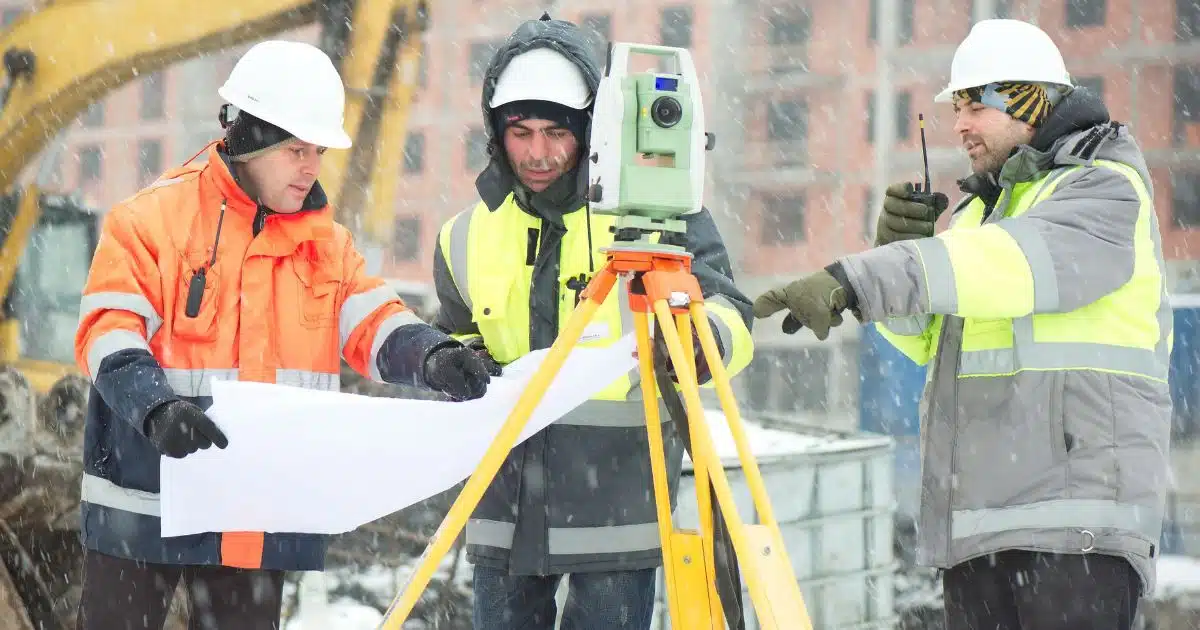While the winter season can be beautiful and enjoyable for many families, it does not come without its risks, especially for those working outdoors in the harsh conditions. Outdoor workers can be injured in unique ways during the cold winter months. Outdoor workers are vulnerable to the following hazards during the winter season:
- Slip and fall accidents: A slip and fall can happen at any time of year but especially during snowy, icy winter conditions. Outdoor workers are particularly prone to winter slip and falls. Injuries from a slip and fall can be serious, such as broken bones, head injuries, neck injuries, and back injuries.
- Motor vehicle accidents: Many workers are injured or die each year in work-related motor vehicle accidents. Some workers are required to travel each day as part of their job, such as a traveling salesperson. During the winter, they are especially vulnerable to accidents. Winter driving conditions have the potential to be extremely hazardous for those who work outdoors.
- Hypothermia: This is a dangerous condition where the body temperature drops to a point where it cannot be restored. Under these conditions, the body starts to shut down blood flow to the skin, arms, and legs in an attempt to reduce heat loss. Untreated hypothermia can lead to total failure of the heart and respiratory system and can be fatal. All workers should recognize the signs of hypothermia and know what to do should it occur.
- Frostbite: This happens when prolonged exposure to the cold damages skin tissue and the tissue underneath. It commonly affects the fingers, toes, face, and ears and can be permanent and require amputation. Outdoor workers should watch out for the early signs of frostbite, and they should get medical attention immediately if it begins to occur.
- Trench foot: This is a foot injury caused by prolonged exposure to wet and/or cold conditions. It does not involve freezing and can occur in temperatures as much as much as 59 degrees Fahrenheit, but it is most common in a range of 30 to 40 degrees Fahrenheit. Trench foot can be painful and lead to damage of the nerves, muscles, skin, and blood vessels. This is a serious and painful condition that should be treated immediately.
Any worker whose job requires them to stay outdoors for prolonged periods in winter conditions is at risk for cold stress injuries and illness. This includes construction workers, utility workers, delivery drivers, postal workers, and highway and transit workers.
All outdoor workers should know the hazards of the winter season. Both workers and employers should follow ways to prevent injury during winter and all year-round.
How Can Outdoor Workers Stay Safe in the Winter?
Now that you know the common dangers of working outside in the winter, you should know some tips on how to stay safe and avoid these hazards. Some helpful tips for outdoor workers include:
- Wear the right gear: Being prepared for the outdoor winter conditions can prevent many workplace injuries and illnesses. The Occupational Safety and Health Administration (OSHA) recommends that outdoor workers wear at least three layers of clothing to protect against the cold. The layers should be loose-fitting to allow circulation, as tight clothing can cut off blood circulation to the extremities. The base layer should be moisture wicking to remove wetness from the body. The middle layer should be insulating, and the outer layer should be waterproof to prevent the worker from getting wet. A hat is also vital as well as insulated boots. If possible, a mask that covers the face and mouth can also be used as long as it does not affect safety or work tasks.
- Eat well and stay hydrated: Outdoor workers should take frequent breaks to warm up and stay hydrated with warm liquids and soups. Eating well provides the body with enough calories to stay warm while working outside in cold temperatures. If possible, outdoor workers should take a few quick breaks throughout the day to warm up, eat, and drink.
- Use the buddy system: All outdoor workers should use the buddy system to recognize the signs and symptoms of cold stress and injuries. By doing this, workers can keep each other safe by recognizing signs of cold-related illnesses and injuries. This will help prevent serious injuries.
Additionally, outdoor workers should be trained to recognize that a colleague may be having trouble and needs help by being familiar with these signs and symptoms:
- Signs of hypothermia include shivering, slow or slurred speech, memory loss, drowsiness, exhaustion, and disorientation.
- Signs of frostbite include numbness, white or yellow looking skin, slower motor function, and an inability to pick things up.
- Signs of trench foot include tingling or itching, pain, swelling, numbness, or a prickly sensation.
What to Do if You Have a Work-Related Injury
If you have been injured on the job while working outside in wintery conditions, seek medical attention immediately, and then report your injury to your supervisor or manager as soon as possible. It is important to see a doctor after any type of work accident, even if you are not sure if you have an injury because you may not be in a position to evaluate your condition on your own. Reporting your injury to your employer right away is important because there are time limits for filing for Workers’ Compensation benefits.
Wilmington Workers’ Compensation Lawyers at Rhoades & Morrow Can Help You if You Have Been Injured in a Workplace Winter-Related Accident
If you have questions about filing a claim for benefits, or your claim has been denied, one of our experienced Wilmington Workers’ Compensation lawyers at Rhoades & Morrow can help. Call us at (302) 427-9500 or contact us online to schedule a free consultation. We have offices in Wilmington, Bear, Milford, and Lewes, Delaware. With offices in all three counties of Delaware, we serve clients throughout the state.





